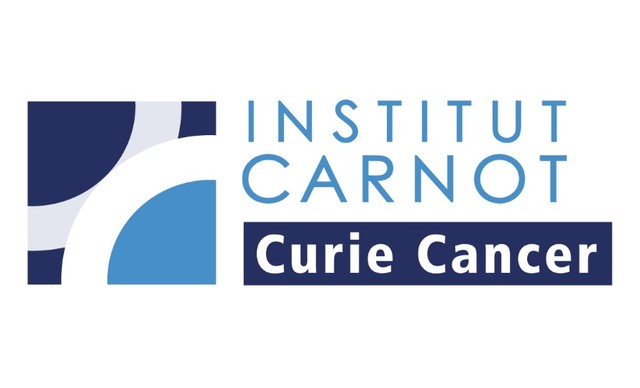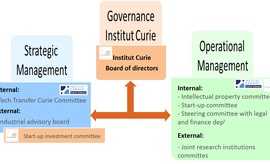The label Institut Carnot Curie Cancer of Institut Curie renewed

“In recent years, Institut Curie has considerably strengthened its ability to forge ambitious industrial partnerships, notably thanks to the prestigious Institut Carnot label first obtained in 2011. Our objective will be to amplify this dynamic by taking advantage of the world-renowned excellence of both the research Center and the Hospital Group of Institut Curie”, said Amaury Martin, Director of Technology Transfer and Industrial Partnerships Office and Director of the Institut Carnot Curie Cancer.
... strengthen the dynamics of technology transfer and give itself the means to a more proactive policy oriented towards open innovation, Co-development and international partnerships
Institut Carnot Curie Cancer is directly anchored in the strategy devised by Marie Curie at the beginning of the 20th century and more topical than ever: from bench to the patient's bedside and vice versa. Indeed, Curie Cancer relies on the many talents of Institut Curie, in fundamental research as well as translational and clinical research. "Curie Cancer's offer has been designed to provide industrial partners with a one-stop-shop that brings together the expertise needed to develop therapeutics, medical devices and cancer research tools," explains Amaury Martin. For Institut Curie, these industrial partnerships are key to bring new treatments to the market. For example, the cost of developing a new oncology therapy is estimated at one billion euros, and its development time will also take 10 to 15 years. These costs and deadlines could not be borne by Institut Curie alone.
For the next six years, the director of the Carnot Curie-Cancer Institute, appointed in January 2016, wants to "strengthen the dynamics of technology transfer and give itself the means to a more proactive policy oriented towards open innovation, Co-development and international partnerships".

